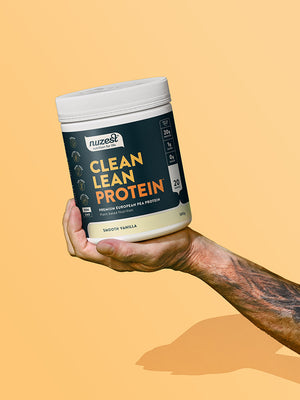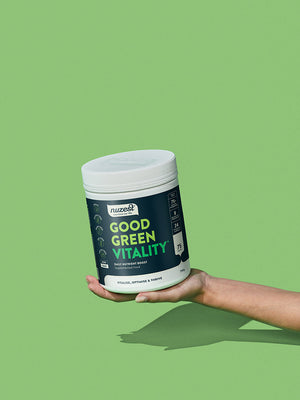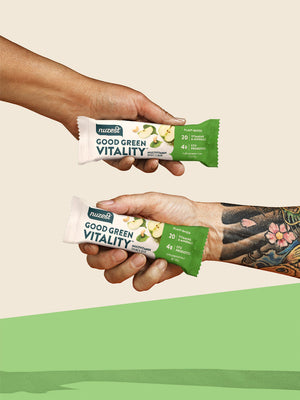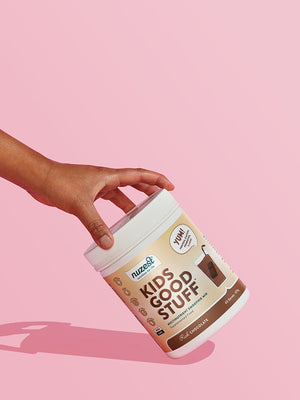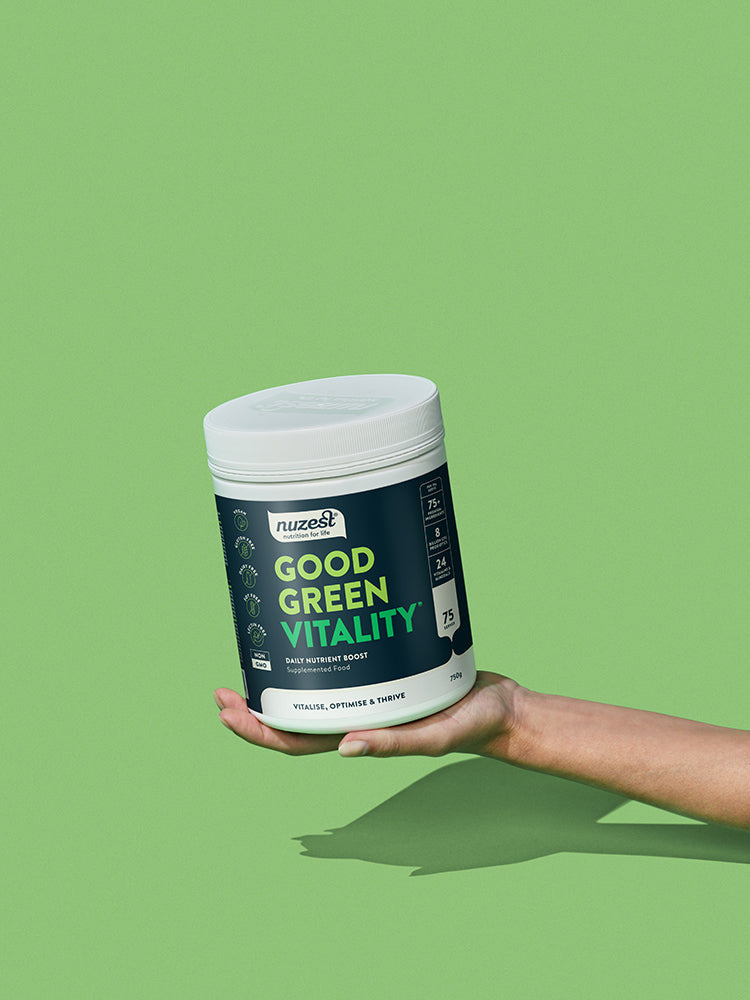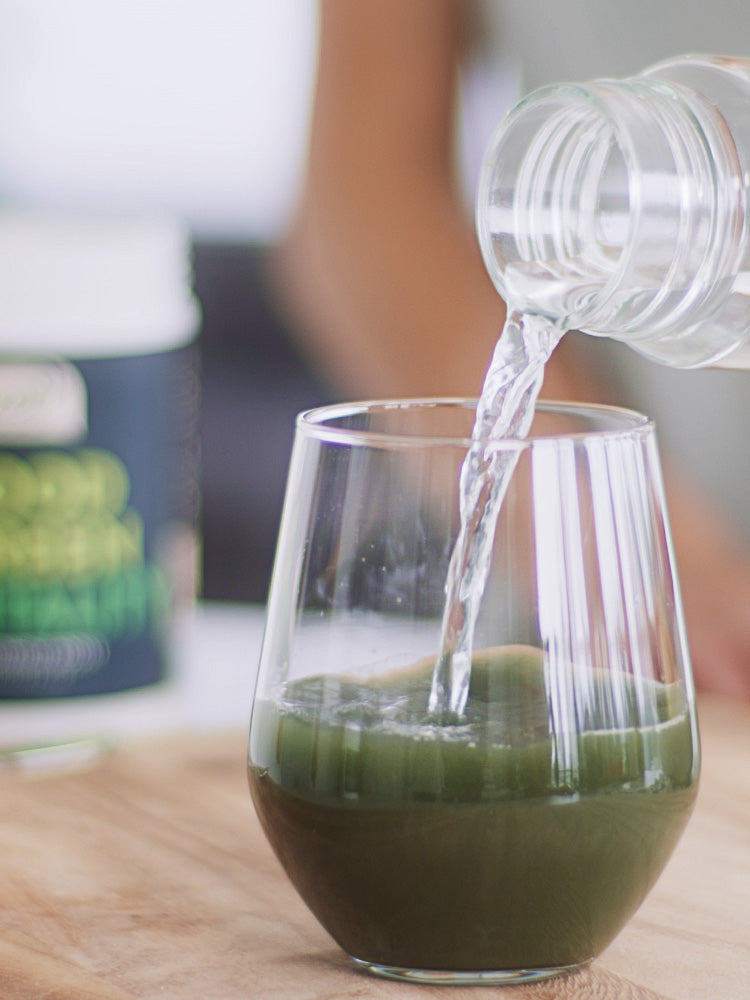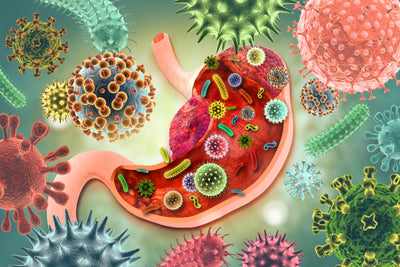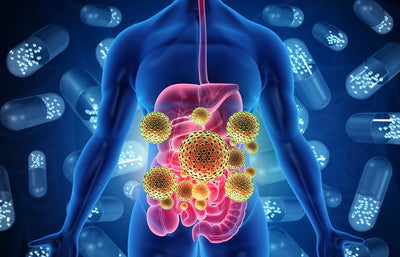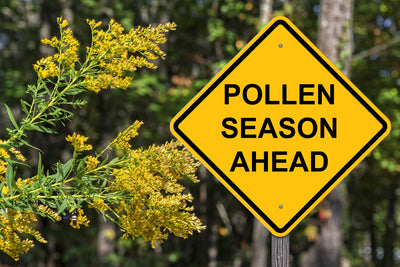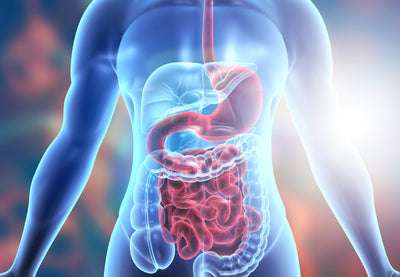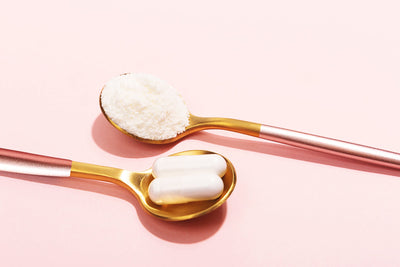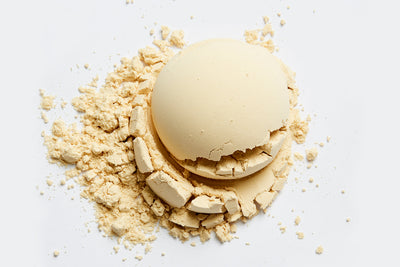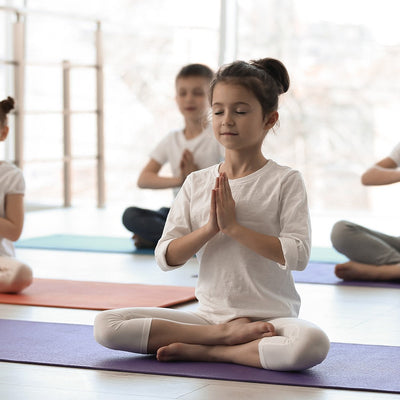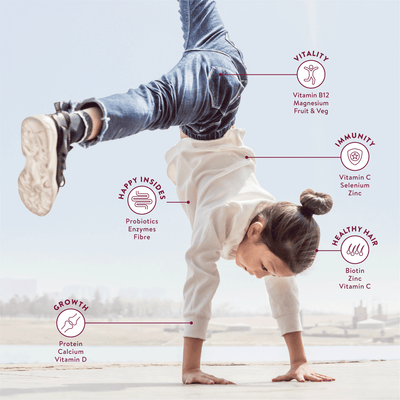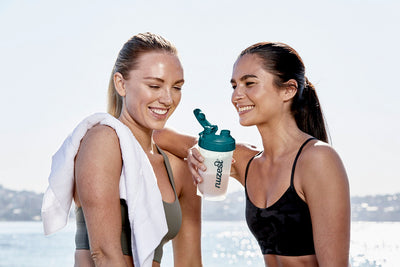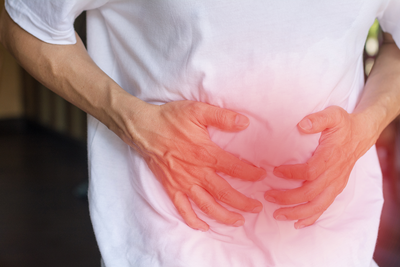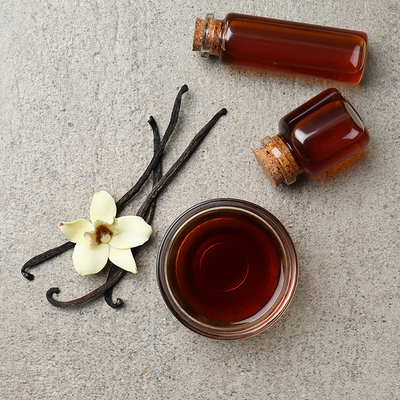17 min read
Holistic immunity: a multifaceted approach to supporting and managing your immune system
Posted By
Caitlin Turner
In light of the corona virus (or COVID-19) pandemic and its impact worldwide, it’s natural to be wondering whether there’s anything we can do to give our immune systems a helping hand.
Our immune systems are complex, and the chances of contracting an illness are multi factorial and complicated; even those among us with the healthiest habits get ill sometimes, and whether or not we contract an illness is certainly not solely under our control.
However, understanding what aspects of our lifestyle may compromise the strength of our immune system, and conversely what lifestyle habits can support it, can help to alleviate anxiety and allow us to feel more confident in our ability to provide our immune system with everything it needs to function as effectively and efficiently as possible.

Hygiene
Any discussion about supporting immunity must begin with hygiene – the easiest way to protect your body from a viral or bacterial illness is to make sure none of the virus or bacteria enters your body!
Washing your hands properly and regularly is a vital step; you should use enough soap to completely cover your hands, scrubbing the palms, backs and between your fingers, for about 20 seconds, and you should wash them before eating, after using anything that lots of people touch (like handrails and shopping baskets/trolleys), after being on public transport and after using the bathroom.
In addition, avoid touching your face, especially your mouth, nose and eyes. Soap is the most effective, but if it’s not available to you, hand sanitiser is also a great option.
Nutrition
Immunity and nutrition are tightly linked. While one part of our immune system is always working, another springs into action only when needed, for example when we come into contact with a virus.
This increase in activity requires extra energy. Cells in the immune system can get energy from carbohydrates, protein or fats, either from the diet or from body stores, and extracting this energy requires a number of vitamins and minerals.1
It is therefore important to ensure you are not only eating enough food, but that you are eating a diverse diet, to ensure your immune system can function well.
The following vitamins and minerals are particularly important for immune function:2
- Vitamin A
- Vitamin B6
- Folate (vitamin B9)
- Vitamin B12
- Vitamin C
- Vitamin D
- Vitamin E
- Zinc
- Iron
- Selenium
- Copper
Eating a balanced diet of wholegrains, fruits and veggies in every colour of the rainbow, complete proteins and healthy fats, will help you to fit in all of these vitamins and minerals each day
Although if you are vegan you will need to seek out foods fortified with vitamin B12, or take a supplement, as this vitamin is only found in animal sources.
Check out this article by plant-based dietitian Kiah Paetz for more information...
Fermented foods, like kimchi, sauerkraut, kombucha, miso and yoghurt are also beneficial in the diet, as these contain probiotics.
Probiotics have been shown to help to improve our body’s immune response – they should be eaten every day, as this improvement is not permanent.2
Interested in learning more about foods that can help to support your immune system? Accredited Practicing Dietitian and Nutritionist Rachel Hawkins shares her favourite immune-supporting plant-based foods here...
Exercise
The effects of exercise on immunity are both acute (short term) and chronic (long lasting) and depend on the length and intensity of the exercise session.
Regular moderate or vigorous exercise, lasting less than 60 minutes per session, enhances immunosurveillance (the process of the immune system looking for bacteria, viruses and precancerous cells) and reduces inflammation.3
A high exercise workload, for example prolonged or intensive endurance exercise like marathon training or elite level athletics, is linked to immune dysfunction and inflammation, which can last several hours to days after exercise. This change in immunity has been linked to an increased risk of upper respiratory tract infections (e.g. colds and flu), though this may also be due to other factors like reduced sleep and higher stress, which is common in athletes.3
The summary of evidence suggests that 20-60 minutes of exercise almost every day could reduce your risk of upper respiratory tract infections by 40-50%.3
This doesn’t mean that moderate daily exercise will prevent you ever catching a cold, but your body is more likely to be able to fight off the infection than if you didn’t exercise at all.
Looking for some workouts to help you stay active during lock down? Check out our list of favourite fitness apps – all of which can be used at home!

Sleep
Our immune systems are influenced by the amount and quality of our sleep, but it also works the other way – a lack of sleep can negatively impact our immune systems, too. Sufficient sleep is important for our bodies to fight illness (that’s why we tend to feel more tired when we’re ill).
Consistently sleeping too little effects immune function and increases our risk of illness. Unfortunately, a single night (or even two) of good sleep probably isn’t enough to restore your immune system to full working order; you’ll likely need an extended period of good sleep at night, but daytime naps can help as well.4
We also know that increased activity in the immune system, like when you have an illness or infection, can disrupt normal sleep. Some illnesses make you more tired, like fevers, which might be because your body needs to conserve energy to fight them off.4
Making sure you practice good sleep hygiene (the habits and routines occurring before bedtime) helps to ensure enough sleep to both decrease your risk of illness and help your body recover more quickly if you become ill. Sleep hygiene includes:
- Ensuring your room is dark and free of distractions; try not to use your bed as an office or to watch tv, as the goal is for your mind to only associate your bed with sleep!
- Avoiding screens for an hour before bed, as the blue light can disrupt our sleep hormones; even if you have a blue light filter, the activities that we do with screens tend to be very stimulating
- Avoiding caffeine after lunchtime, or even earlier if you are particularly sensitive
- Taking a warm bath or shower before bed for relaxation
- Having a regular routine can signal to your body that it’s time to rest, for example a cup of herbal tea followed by a shower, then reading for half an hour
- Waking and going to bed at the same time every day, even weekends
- Getting some natural sunlight first thing in the morning, which can help to regulate your body clock
Stress
The way in which stress effects immunity is dependent on one major factor: the duration of stress. Short term stress (lasting minutes to hours) appears to enhance the immune response – a necessary feature from our evolutionary history, when short term stress may have involved injury from a predator. However, stress lasting longer than this, such as the type of stresses we encounter in our modern world (family, work, personal), which can last days, months or even years, has a negative effect on immune function.5
There are some lifestyle changes that can be made to reduce your stress levels.
These include sleeping enough so you are rested, eating a healthy and varied diet, moderate exercise, gratitude and compassion, ensuring adequate social support and engaging in activities that you find calming.
Such activities can be anything that you enjoy; meditation and yoga are often touted as stress-relieving, but music, art, hiking, fishing or any other leisure activity can work.5
It is likely that the reason for the effect on immunity of any category spoken about in this article (exercise, sleep, nutrition, smoking) is down to the way they activate or reduce the stress response, and so being mindful of stress levels may be the most important tool in your immunity arsenal.

Smoking
Unlike stress or exercise, which can have a positive or negative effect on immunity depending on various factors, it can categorically be stated that there are no positives to smoking, neither on immunity nor on anything else.
There can be no better advice than to stop, immediately and completely, to almost instantly improve your health. Speak to your doctor for help and resources to quit.
Cigarette smoke alters the immune response in several ways; by directly impacting the cells of the immune system, and by affecting the immune response, both of which leave the body more susceptible to infection.6
Supplements
Along with the lifestyle advice mentioned here, you may also like to consider a nutritional supplement to ensure your body has enough of the right nutrients needed to support your immune system.
I’m sure most people have heard the advice to take vitamin C when they're coming down with a cold, some may have also heard about the benefits of vitamin D, but these are not the only important nutrients.
When it comes to supplementation, it is often best to take a multi-nutrient approach – that is, not taking a single nutrient in isolation, but taking a range of nutrients which work together in balance for optimum results.
Below are a list of important nutrients and their role in the immune system:
- Vitamin C stimulates both the production and function of several important immune cells.2 Taking 1,000 mg of vitamin C alone is probably not going to do much, despite it’s popularity as a cold and flu remedy – but taking smaller amounts alongside other nutrients could help your immune system when it’s working hard.
- Vitamin D stimulates the immune system to produce more immune cells, which enhances the ability to fight off invading bacteria and viruses.7
- Vitamin E enhances the function of a specific type of immune cell, called T cells, and has been shown in animal studies to reduce the symptoms of flu.7
- Vitamin A is important for the function of certain immune cells, and also to maintain the barriers which stop bacteria and viruses entering our bodies in the first place.2 As vitamin A is a fat-soluble vitamin, it is possible to experience vitamin A toxicity if you take too much of it. Check with a health professional if you are taking more than one vitamin A-containing product to ensure you are not taking too much.
- Zinc is vital for the immune system to function correctly as it is involved in the development of immune cells. It’s important to get enough zinc, but not too much, as too much zinc can also negatively affect the immune system.7 Check with a health professional if you are taking more than one zinc-containing product to ensure you are not taking too much.
- Selenium is an essential nutrient for many processes within the immune system, and deficiency can lead to a worsening of symptoms of some viral infections.2
- Probiotics have been shown to reduce the length of respiratory infections (for example colds and flu) and reduce the risk of catching the common cold.7 A large part of your immune system is in your gut, and probiotics can help to temporarily improve the mixture of beneficial bacteria in your stomach and intestines, helping the portion of immune system hosted by the gut to work effectively.
These nutrients do not work in isolation and a deficiency in one area can prevent other nutrients doing their job. It is for this reason that it’s important to take such nutrients in combination and in appropriate doses.
Nuzest Good Green Vitality is a multi nutrient supplement that contains many of these immune-supporting nutrients! One daily serve of Nuzest Good Green Vitality will provide your body with a combination of nutrients that work synergistically together to support your immune health.
If you are taking multiple nutritional supplements or regular medication, it is recommended that you consult a health care practitioner to provide individual advice regarding supplementation and what is appropriate for you.
References
- Calder PC. Feeding the immune system. Proc Nutr Soc 2013;72(3):299-309.
- Linus Pauling Institute. Immunity in depth. 2016. Retrieved from https://lpi.oregonstate.edu/mic/health-disease/immunity
- Nieman DC, Wentz LM. The compelling link between physical activity and the body’s defence system. J Sport Health Sci 2019;8(3):201.217.
- Besedovsky L, Lange T, Haack M. The sleep-immune crosstalk in health and disease. Physiol Rev 2019;99(3):1325-1380.
- Dhabhar FS. Effects of stress on immune function: the good, the bad, and the beautiful. Immunol Res 2014;58:193-210.
- Alrouji M, Maouchehrinia A, Gran B et al. Effects of cigarette smoke on immunity, neuroinflammation and multiple sclerosis. J Neuroimmunol 2019;329:24-34.
- Wu D, Lewis ED, Pae M, et al. Nutritional modulation of immune function: analysis of evidence, mechanisms and clinical relevance. Front Immunol 2019.
Related news
min read
An Introduction to Gut Health & Nutrition – 5 Must See Articles
Gut health significantly affects overall wellbeing, influencing brain function, immunity, and metabolism. A balanced gut microbiota, influenced by diet and environment, can potentially enhance health, aid digestion, and reduce allergies. The roles of probiotics and prebiotics in gut health are also discussed.
min read
Probiotics vs. Prebiotics
Unleash gut health with probiotics and prebiotics! Strengthen digestion, immunity, and overall well-being. Try Nuzest's Good Green Vitality for convenient support with 8 billion CFU of probiotics. Take charge now!
min read
The Link Between Gut Health & Allergies - Plus 5 Top Tips to Help
Discover the link between gut health and allergies, and how the gut microbiome influences the body's immune response to allergens. Learn how adopting a balanced diet with prebiotics and probiotics can support gut health, reducing the risk of allergic reactions. Explore solutions for allergy relief and fostering a healthier gut with Nuzest’s multi-nutrient formula, Good Green Vitality.
min read
The Great Diet Debate: Unravelling the Tapestry of Popular Eating Plans
Exploring popular diets such as the Mediterranean, Ketogenic, Plant-Based, Paleo, and Intermittent Fasting, this overview highlights their principles, benefits, and considerations. It emphasizes the importance of finding a dietary pattern that aligns with individual health goals and preferences, while suggesting the potential benefits of incorporating a multi-nutrient supplement for overall health.
min read
The Gut Connection: How to Improve Your Digestion and Gut Health in 6 Steps
Discover the significance of gut health and its impact on digestion and overall well-being in this insightful article. Learn six practical steps, including maintaining a balanced diet, staying hydrated, managing stress, and using antibiotics wisely, to promote a healthy gut and enhance vitality.
min read
Does Gut Health Affect Your Immune System? | Do These 6 Things
The gut microbiome, which consists of trillions of bacteria in our digestive tract, plays a crucial role in supporting our immune system and overall health. Consuming probiotics and prebiotics, staying hydrated, managing stress, limiting processed foods, and engaging in outdoor activity and exercise are effective strategies to promote a healthy gut and enhance immunity.
min read
What is Collagen? Types, Sources and Benefits of Supplementation
Collagen is essential for joints, bones, muscles, ligaments, tendons, cartilage, skin, hair and nails.2 It is one of the primary structural proteins of connective tissue and plays a crucial role in the body by cushioning, strengthening, hydrating, binding, and connecting tissues together.3 Connective tissues are able to provide physical and mechanical support through the collagen, elastic and reticular fibres
min read
Kids Good Stuff for Skin Health
How can you ensure your kids have healthy skin? A part from the obvious, what nutrients can we provide our kids to ensure their skin stays in tip top shape?
min read
Maximising Mood In Your Kids
Almost 1 in 7 children and adults aged 4-17 had been diagnosed with a mental health disorder. Amy Butler discusses good nutrition and lifestyle modifications, that can help to reduce the risk.
min read
Long-Lasting Energy For Kids
Children and adolescents are going through massive periods of growth and development. To keep up with the demands of school, extracurricular activities, sports and friendships, kids often need a bit of an energy boost. In our latest blog we break down some specific nutrients for energy, to help support growing kids, and the best places to source them from.
min read
Setting Health Goals & Staying Motivated in 2021
Use this tried and tested goal strategy to set smaller, specific goals to avoid the overwhelm of unrealistic and vague health objectives.







